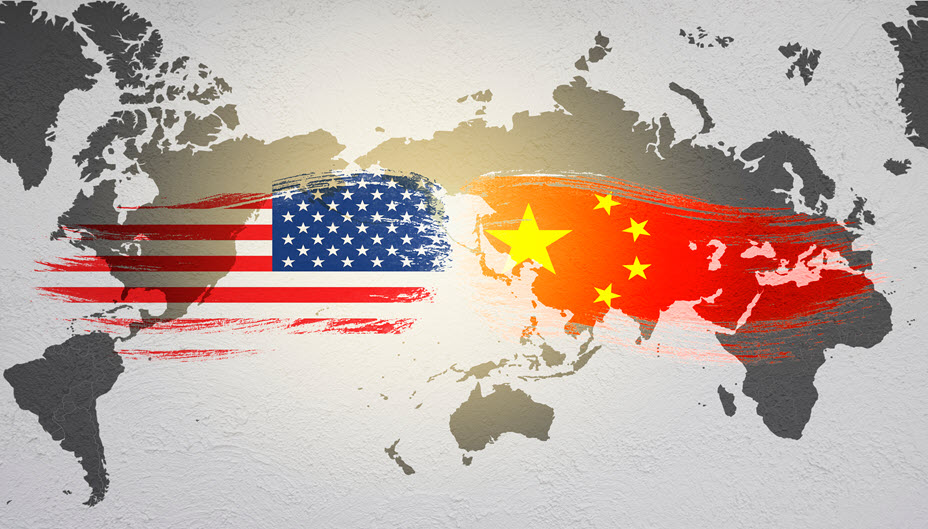Can Protectionism Ever Be Good for Investors?
Written by The Content Team
Published on August 20, 2019
minute read
Share:
Protectionism. Let's face it, it's hard to avoid that word these days. But what exactly does it mean, how does it affect an economy and should investors be paying attention to it? Let's find out.
In a nutshell, protectionism occurs when a government implements trade restrictions or policies to shield its domestic economy from foreign competition. Protectionist measures can include things like import tariffs, quotas and export subsidies, to name a few examples.
How does protectionism affect investors? We turned to Eric Lascelles, Chief Economist at RBC Global Asset Management (RBC GAM), to give us some insight.
While there are small ways investors can take advantage of protectionism, it's generally more of a negative than a positive, he says. On the upside, investors can sometimes benefit from companies who like trade impediments, such as those that prosper when foreign competition within their domestic market is absent or restricted. On the whole, however, protectionism tends to be more of a drag on a country's economy and stock market, rather than a stimulus.
"Usually there are more losers than winners, particularly when you think of big companies and stock markets being multinationals that are trying to operate across borders and protectionism is impeding that to some extent," Lascelles says.
Lascelles notes that protectionism has caused drags on the economy. He cites late 2018 as an example, when trade concerns were elevated and the stock market faltered, and a similar episode in May 2019, which saw a draw-down in risk assets. Markets, Lascelles says, rebounded on both occasions, largely thanks to other factors, such as central-bank actions and continued economic growth more broadly.
"So I wouldn't want to suggest that protectionism is by any means the only factor worth considering," Lascelles says. "But, all else being equal, it does exert a bit of a drag."
Rise of Protectionism
While protectionism isn't new, it has picked up steam in the United States after Donald Trump gained the White House on promises to implement major trade reforms. Under President Trump, U.S. protectionism has largely targeted Mexico, China, Germany and Japan — the countries with the largest trade surpluses with the U.S.
China, the country we've heard the most about in connection with U.S. protectionism, is responsible for 61 per cent of the U.S. trade deficit. Mexico, Germany and Japan lag well behind that, while Canada doesn't contribute to the U.S. trade deficit significantly, Lascelles says.
U.S. protectionist efforts have focused on renegotiating NAFTA, imposing various blanket tariffs on products like steel and aluminum and reforming the U.S.-China trade relationship, according to Lascelles in a special RBC GAM report titled "A primer on protectionism."
How Do Tariffs Affect an Economy?
Tariffs on foreign imports, the most common protectionist measure, can come with positives and negatives, Lascelles says. Since tariffs are essentially a tax on foreign imports, they increase government revenue while helping to squeeze out foreign competition. Once foreign competition is squeezed out, domestic companies can capture more market share, Lascelles notes.
Still, he says "this glimmer of good is easily outweighed by the bad." The main downside? Products become more expensive to buy.
Lascelles also points out a number of other economic detriments associated with protectionism, including the following:
- Less selection as a result of fewer products in the marketplace
- Less specialization as domestic firms work to fill the product void left by foreign companies
- Stronger currency for the tariff issuer, since the exchange rate reflects the perceived competitive advantage of one country over another
- Damage to global supply chains as tariffs impact trading partners across borders
With the rate of global trade growth slowing, Lascelles says it's clear that damage is being done today.
He adds that while protectionism is "a relevant theme" for investors today, it's only one of many considerations.
RBC Direct Investing Inc., RBC Global Asset Management Inc. and Royal Bank of Canada are separate corporate entities which are affiliated. RBC Direct Investing Inc. is a wholly owned subsidiary of Royal Bank of Canada and is a Member of the Investment Industry Regulatory Organization of Canada and the Canadian Investor Protection Fund. Royal Bank of Canada and certain of its issuers are related to RBC Direct Investing Inc. RBC Direct Investing Inc. does not provide investment advice or recommendations regarding the purchase or sale of any securities. Investors are responsible for their own investment decisions. RBC Direct Investing is a business name used by RBC Direct Investing Inc. ® / ™ Trademark(s) of Royal Bank of Canada. RBC and Royal Bank are registered trademarks of Royal Bank of Canada. Used under licence. © Royal Bank of Canada 2019. All rights reserved.
The views and opinions expressed in this publication are for your general interest and do not necessarily reflect the views and opinions of RBC Direct Investing. Furthermore, the products, services and securities referred to in this publication are only available in Canada and other jurisdictions where they may be legally offered for sale. If you are not currently resident of Canada, you should not access the information available on the RBC Direct Investing website.
Explore More

7 Ways to Get Ahead Financially in 2026
How you might invigorate your finances and put your money to work more intentionally this year
minute read

Economic Outlook: Uncertainty is Here to Stay, So What's Next?
Takeaways from the Economic Club of Canada’s Annual Event
minute read

3 things: Week of December 15
What the Inspired Investor team is watching this week
minute read
Inspired Investor brings you personal stories, timely information and expert insights to empower your investment decisions. Visit About Us to find out more.







